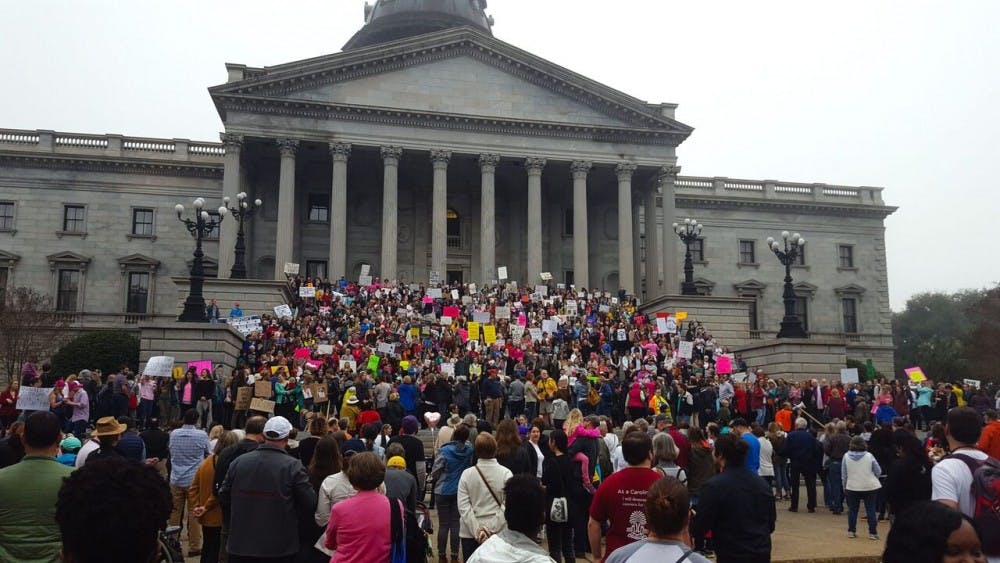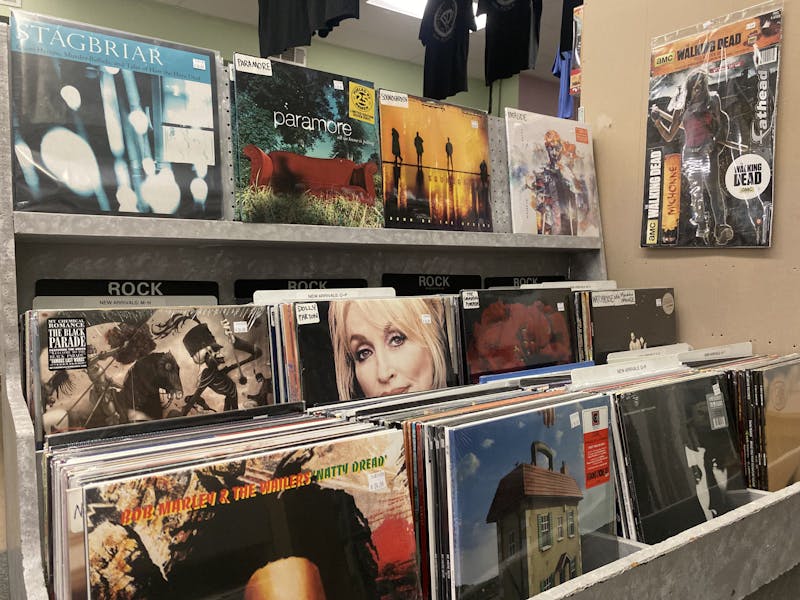As I looked into the crowd of people at Music Farm just 24 hours after the inauguration of President Trump, I saw a sea of bright pink pussyhats. The rally in Columbia was one of over 600 sister marches around the world that accompanied the Women’s March on Washington. The brightly colored knit caps acted as a support symbol for those marching. The mission of the pussyhat project was to serve as a collective visual and political statement, but also served a practical purpose for those who would be enduring the freezing temperatures at the march in Washington, D.C.
Music Farm reached capacity just an hour after the even began as thousands of men, women and children from all backgrounds met at the venue on Saturday, Jan. 21. People spilled into the surrounding space outside and onto Senate and Assembly streets. The rain did not stop hundreds more from congregating on the Statehouse steps and from marching down Main Street in the afternoon.

These marches aimed to raise awareness for a myriad of political and social issues. Participants voiced concern for LGBTQ rights, access to affordable healthcare, immigrant reform, rape culture and a host of other topics.
Isabel Fox, a fourth-year international studies and history student at USC, attended the event with a friend.
“I’m very passionate about equal rights and equal pay, and I think that we need to keep working to fight sexual assault on campus too,” Fox said. “I think it is important to have our voices heard.”
Patricia Hough is an ordained minister with the United Church of Christ. She was involved in the Civil Rights Movement during the ‘50s and ‘60s, and mentioned an encounter with the Ku Klux Klan while marching for integration.
“There’s always the risk…you’re always endangered when you’re taking a position for social change that’s not looked upon with approval from administration,” Hough said.
Hough is passionate about access to adequate healthcare and paid maternity leave, something that she and her daughter were both denied.
“We need to step up to the plate and realize that women are valuable workers and we need to support them during pregnancy,” Hough said.
Organizations such as Planned Parenthood, South Carolina Progressive Network and Girls Rock had tables at the event. Sarah Ingraham, an intern and volunteer coordinator at Planned Parenthood, explained why it is important to reach out to community members and business partners.
“We can get the most work done effectively if we have a large network of people supporting us,” Ingraham said.

The rally celebrated all forms of artistic expression and encouraged political activism. Mable Canty, a member of Bethel United Methodist Church, performed a powerful rendition of Dr. Martin Luther King Jr.’s favorite song, “If I Can Help Somebody.” South Carolina poet Nikky Finney read an original poem titled “The Good Fight, Again.”
The atmosphere at the event was one of inclusivity and empowerment. Dr. Will Moreau Goins, a chair member of Interfaith Partners of South Carolina, effectively conveyed the purpose of the rally in a few sentences.
“We must do our part in producing a just society,” he said. “Silence is not an option.”




